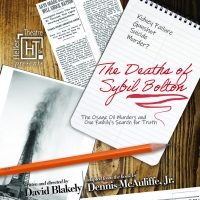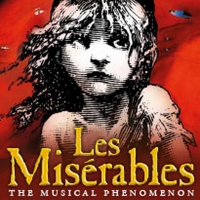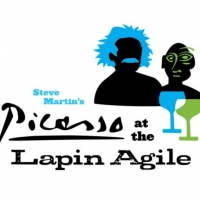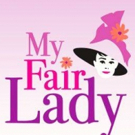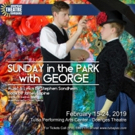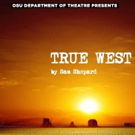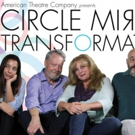
Dara is a writer and advocate with a background in leadership development and education. She graduated with honors from Columbia University, completing a degree in English and Comparative Literature focused on contemporary drama. While at Columbia, she was selected for the Oxbridge Scholars Program and a theatre education internship with The 52nd Street Project. Teach for America brought her to Oklahoma, where she was a founding member of the inclusion council at CAP Tulsa and co-founded the Gay-Straight Alliance at the high school where she taught English. She also worked in operations at a nonprofit organization that identifies and connects leaders in the greater Tulsa community. Dara currently works at the Good Food Institute, where she plans and writes donor communications to inspire GFI's global community of supporters. She is a member of the Sentient Media Writers' Collective and has mentored with Magnify Mentoring and the Odyssey Mentoring Program. Dara serves on the board of DC Veg Week, an organization working to increase compassion toward animals in Washington DC.
Favorite Stories:
- Review: FUN HOME at Studio Theatre - One of my favorite musicals, performed with extra heart.
- COME FROM AWAY: In Concert at the Lincoln Memorial - A one-night-only unforgettable experience.
- BWW Review: The Orbit Initiative's Hamlet - Shakespeare over Zoom during the early pandemic.
- BWW Interview: Theatre Tulsa's Jarrod Kopp - A conversation with the executive director Tulsa's oldest nonprofit theatre.
- BWW Review: SUNDAY IN THE PARK WITH GEORGE at American Theatre Company - Sondheim in Tulsa.
September 20, 2019
There is a real bar in France called the Lapin Agile. There was a real physicist named Albert Einstein, and a real artist named Pablo Picasso. But their serendipitous meeting over drinks at said bar is entirely imaginary - straight from the mind of comedic visionary Steve Martin, to be exact. His play depicting this encounter, entitled Picasso at the Lapin Agile, is currently playing at the Tulsa PAC. Theatre Tulsa's production brings a gutsy and committed cast to a script that is as eccentric as its titular character.
June 12, 2019
Tulsa is a great city for entertainment, but sometimes locals are reluctant to take a chance on homegrown performances when big names come to town. Theatre Tulsa is working hard to expand on the name-brand mindset and bring local productions into the spotlight. I had the opportunity to sit down with Theatre Tulsa's executive director, Jarrod Kopp, and chat about how Theatre Tulsa has gotten to where it is today and their plans for the future of theatre in Tulsa.
June 8, 2019
Last fall, I had the opportunity to chat with Jeremy Stevens, the Education and Development Coordinator at the Tulsa Performing Arts Center, about a project called the Orbit Initiative. During a rare break from tech rehearsal, I sat down to chat with Mr. Stevens about the Orbit Initiative's upcoming production of The Tempest and some of what his team has accomplished in the past 6 months.
May 28, 2019
A great play can serve as a window into a character's mind, and that window helps audiences develop a deeper understanding of what it would be like to inhabit the world as someone else. Theatre Tulsa's production of The Curious Incident of the Dog in the Night-Time provides a unique opportunity to peer into the mind of an exceptional person and emerge with a heightened sense of compassion and affinity for anyone who experiences life a little differently.
April 26, 2019
The resistance is alive and well at American Theatre Company this spring: their production of the feminist farce Denim Doves was a masterpiece of modern political theatre. While it was absurd and outright silly at times, the play's web of messages and themes resonated all the more powerfully due to the infusion of humor into an otherwise ominous tale.
April 19, 2019
The national tour of Waitress, which is running in Tulsa through this weekend at the PAC, is powered by a vibrant female energy, but it is also packed with moments of joy and humor for pie-lovers of all genders. Waitress combines a refreshingly contemporary but accessible score with classic musical theatre influences, both in terms of sound and storytelling. Just as a pie doesn't need to be perfect to be well-worth savoring to the last bite, Waitress is a beautifully imperfect treat, full of sweetness and a cast that you absolutely don't want to miss while they're in town.
March 15, 2019
Several weeks ago, I had the opportunity to chat with actor and on-stage doctor Steven Good about his experience on tour with Waitress. The heartfelt new musical with a score by Sara Bareilles is opening at the Tulsa PAC in a little over a month. In honor of Pi Day, I'm excited to share this exclusive interview with Mr. Good.
March 5, 2019
Near the end of My Fair Lady, the transformed heroine Eliza Doolittle shares an insight about her experience: 'The difference between a lady and a flower girl is not how she behaves, but how she is treated.' The Theatre Tulsa production that just finished its 2-week run at the Performing Arts Center takes this idea one step further. In their interpretation of My Fair Lady, the difference between a lady and a flower girl also has to do with how she is empowered to treat others and advocate for herself.
March 4, 2019
'Art isn't easy.' So sings the great-grandson of Georges Seurat in the second act of Sunday in the Park with George. This Pulitzer prize-winning musical, by Broadway titan Stephen Sondheim, is based on a painting: certainly no easy feat to create, even for Sondheim. The production of Sunday in the Park with George that closed last weekend at the American Theatre Company depicted a profound meditation on art-making, building a legacy, and how to relate to others through, and not in spite of, these processes. Sondheim is correct: art isn't easy. But the talented individuals behind the ATC production could have you fooled.
February 23, 2019
True West tells the story of two brothers whose initially opposing and intermittently intersecting behaviors, ambitions, and anxieties are revealed while house-sitting in Southern California. The crux of the play is this ever-present tension between a superficial realism and a self-referential indulgence of abstract ideas. In OSU's production, young actors present a formidable interpretation of the nuanced characters in this American masterwork.
January 25, 2019
Theatre Tulsa's Beauty and the Beast is proof that a hardy team of local artists can make Disney magic come to life on stage, and do justice to the beloved source material. The production is an outstanding example of local theatre done well, and it brings the familiar 'tale as old as time' to life with a Disneyfied heart.
December 8, 2018
The mission of the new World Stage Theatre Company in Tulsa is as follows: 'The World Stage Theatre Company gives actors and audiences access to the world by telling multicultural, inspirational, and transformational stories to connect our hearts and minds with people, places, and ideas.' Their production of the play Six Degrees of Separation was a great choice in service of this mission, an auspicious beginning to the company's inaugural season.
November 28, 2018
In the author's note to her play Circle Mirror Transformation, playwright Annie Baker writes, 'I hope that you will portray these characters with compassion. They are not fools.' American Theatre Company's production of Circle Mirror Transformation, which recently finished its run at Studio 308, presented an incredibly compassionate and warm depiction of Baker's eclectic cast of characters.
November 19, 2018
The Orbit Initiative is an ambitious constellation of programs spread out across Tulsa dedicated to helping the city celebrate its differences through theatre and the arts. The Initiative is predicated on the idea that theatre and artistic expression should be 'by, of and for all people.' The program is based on a model originally conceived by the Public Theatre in NYC, and is designed to allow regular people to tell their stories and grow closer together through the process of storytelling.
September 16, 2018
In Hedwig and the Angry Inch, identity is stubbornly in flux, and yet the show is a testament to the beauty of living outside of and in between categories. Theatre Tulsa's production of Hedwig and the Angry Inch is a joyous celebration of living beyond boundaries and existing in a theatrical space. The show's metatheatrical frame invites the audience to participate as fans of the titular performer, and Hedwig serves as the narrator for her own story as she shifts between flashback and testimony. She is a self-proclaimed 'internationally ignored song stylist' whose compulsory sex change surgery has left her in a physical state that puts her somewhere in the middle of the gender binary. Hedwig's capacity for inhabiting the space between genders is connected to her skill in linking the onstage world with the world of the audience, and this quality of uncertainty that ultimately reveals authenticity is what makes her the ultimate storyteller.
Videos



